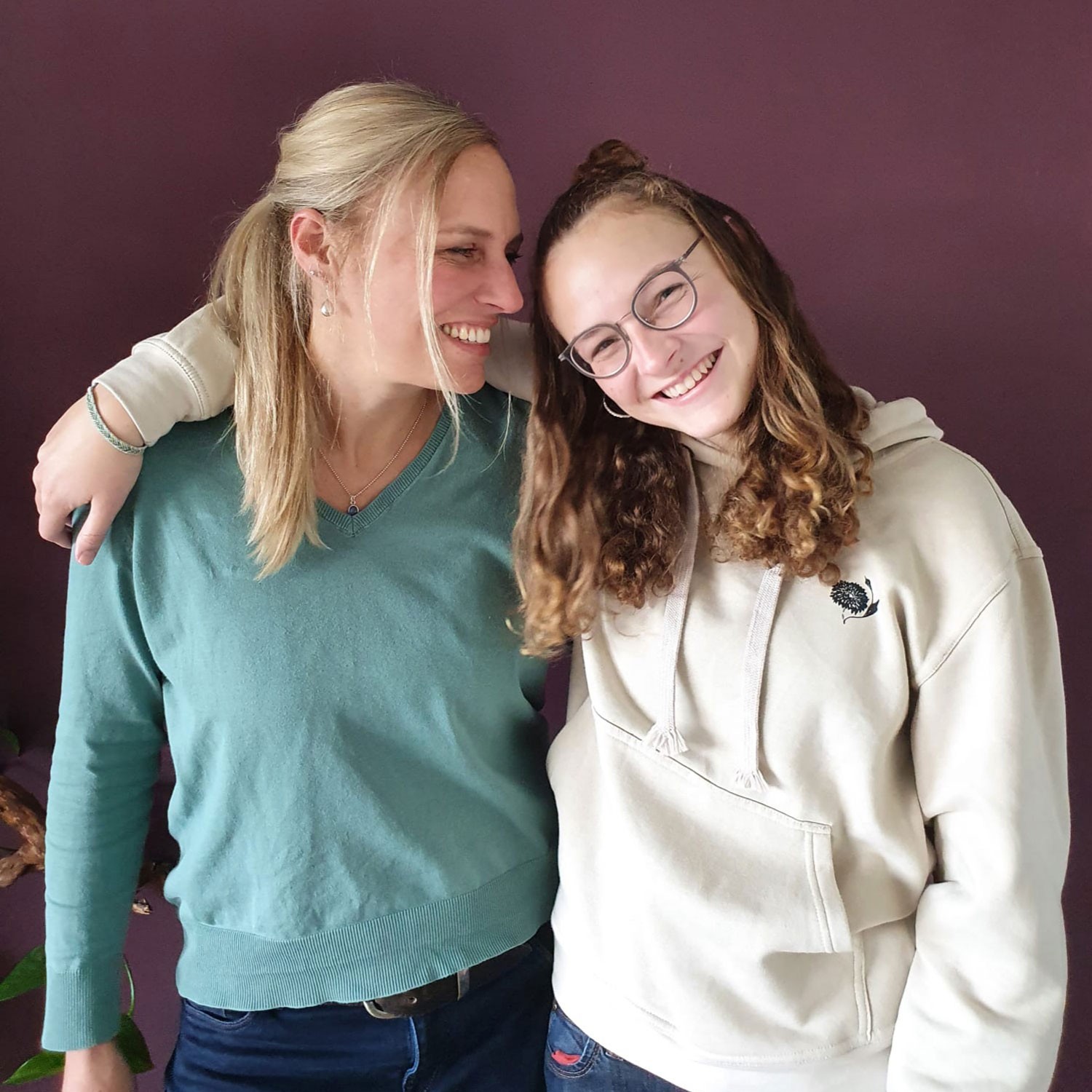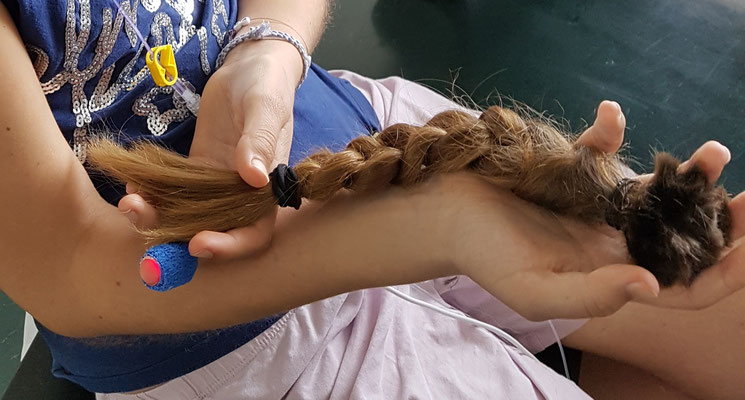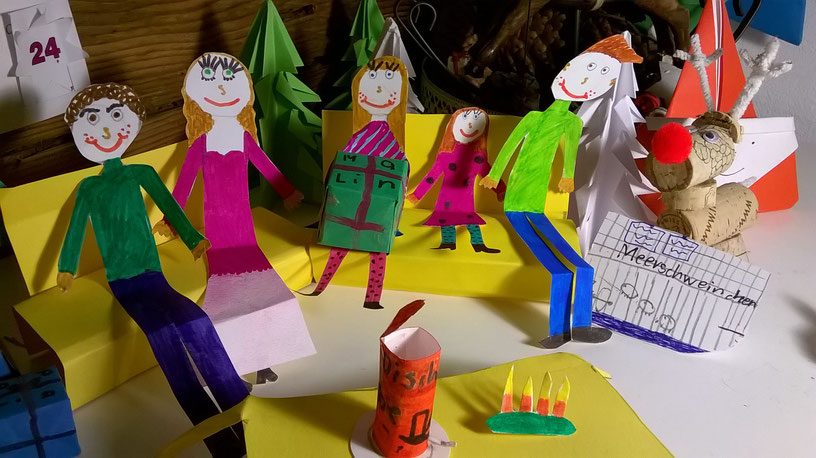“It pulled the rug out from under our feet”
Susanne Mattle-Rohrer, affected mother, whose daughter Malin was diagnosed with leukaemia at the age of 13

“I had to go for a check-up with my GP and I made an appointment for Malin at the same time because she had been feeling so exhausted for a while. But since she had had to have a health check just ten days earlier so she could take part in a rowing competition, I wasn’t that worried. Because of a few issues with her blood count and her slightly enlarged spleen, our GP sent us to A+E in Stans. That was where we heard the word leukaemia for the first time and we were immediately referred to casualty in the paediatric hospital in Lucerne. My husband and I were in a constant flux between being frightened and hoping that it was a mistake, but Malin was examined again and the diagnosis confirmed. She had acute lymphatic leukaemia. Within just a few hours, our whole life had been turned upside down; we were back at the GP’s in the afternoon and at midnight, she was all wired up on the paediatric oncology ward in hospital. We were devastated and had absolutely no idea about what to expect. It pulled the rug out from under our feet.”
“Malin’s chemotherapy started the morning after her diagnosis. The first days were like something out of a bad film. One appointment followed the next, we saw one doctor after another. Again and again, there were questions to be answered and important decisions to be made because the therapy can have long-term consequences. After three weeks in which Malin also suffered complications, she was allowed home for one day. Our life was consumed by Malin’s cancer or rather the fight against her cancer. Because the standard chemotherapy wasn’t showing any signs of taking effect, Malin was classified as being in a high-risk group. This meant even more and even more aggressive chemotherapy over many months and led to life-threatening complications. But Malin had incredible stamina – she managed and has come through it. Luckily, her blood counts, which are now tested every three months, are good, but she is struggling with a number of long-term effects.”

“At the very beginning, Malin promised us she would fight. And she did. She never complained about her fate, never said it wasn’t fair, even though God knows she could have been forgiven for doing so what with all the unexpected and difficult complications. The first few weeks she was in hospital, school was still an issue because she felt she was missing out on too much. But it didn’t take her long to realise she simply wasn’t strong enough to worry about school. It was a full ten months before Malin could go back to school for a few lessons. Because she had missed almost a year, she had to repeat a class. That was hard for her because she had to leave all her good friends and start in a new class with new children. Even now, she is often absent from school due to follow-up checks, therapies or hospital stays because of the late effects. Malin wants to do the Matura, the Swiss equivalent of A levels, and every time she is absent, she makes up for what she has missed with great determination. The head, the teachers and her school friends all have a great deal of understanding and help her wherever they can. That is a great comfort.”
“The chemotherapy took two years. For the first twelve months, my husband and I took turns to be with Malin around the clock in hospital or at home. We were constantly travelling backwards and forwards between home, the hospital and work. I was able to immediately reduce my hours to an absolute minimum. Otherwise I would have had to put my notice in. But at least that way, we had one income between the two of us. And the grandparents were a great help, particularly when it came to looking after Malin’s brother and sister when she was in hospital. It was a massive balancing act between Malin and her healthy, sports-crazy siblings and, as you might imagine, it was not always easy to do justice to all three. And we had to learn how to deal with the fear we had about Malin. The worst thing for parents is having to watch how your own child is lying there suffering, but also fighting, without being able to do anything to help. That really hurts.”
“We were really lucky to have a social environment that supported us in many ways. And we are utterly grateful for that. For example, my uncle let us have a car. We live in the country; Malin was often so weak that it was impossible for her to get to the hospital by public transport. This additional vehicle made things so much easier for us in our everyday life of therapy. Although my husband and I sometimes didn’t see each other for a long time, we were always in touch with each other, talked a lot on the phone. And whenever possible, we took a short walk together in the countryside, even in the rain, snow and wind. The talks we had were important, they gave us strength and the feeling that we would be able to make it together, despite the many setbacks. We have always tried to stay positive and look forward, also for Malin and her siblings. And because it was very important to us that her brother and sister did not miss out, we always tried to create short but intense moments of togetherness with them.”

“When a child is so seriously ill, your world stands still, you feel like you’re in a bubble and you struggle through it together as a family and somehow just keep going. You need a lot of strength, which you simply sometimes don’t have. We would have loved there to be a kind of “helpline”, a number you could phone with any kind of problem. Whether it is for a meal when you just don’t have the time, for a transport service, when you’re not sure about the insurance, for financial or medical questions, for psychological support, for follow-up care, for counselling, for the care of siblings or any other questions, concerns and uncertainties. Such a concrete first port of call could be a source of relief for all parents with a child with cancer in the most uncomplicated way possible and in the most diverse areas. What would also be good, and valuable, would be better support from the invalidity insurance and the health insurance companies. In our experience, applications, requests and cost credits are often initially rejected, then you have to make repeated appeals. That is just so exhausting and often you don’t have the energy to fight any more because you actually need all your strength for the sick child.”